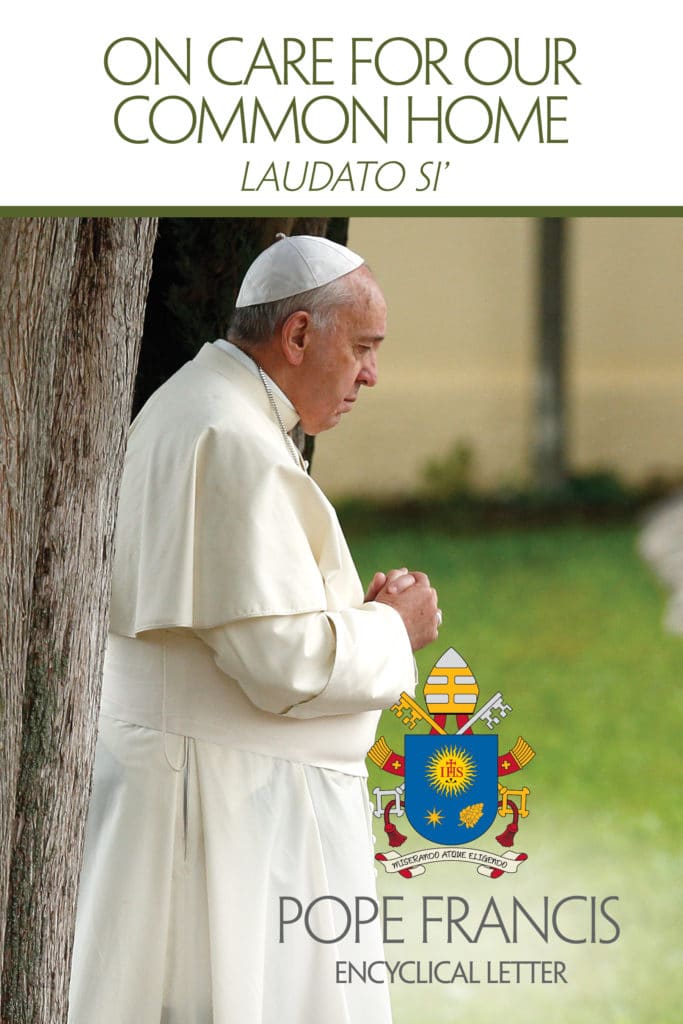Dear Father, Everyone is talking about Pope Francis’ new encyclical Laudato si’, with many praising it and some harshly criticising it. Some of the critics say we are free to disagree with it since it is not an infallible document anyway. Is this the case?
The pope’s new encyclical – Laudato si’ – has received considerable attention from the media and politicians, probably more than any other encyclical since Pope Paul VI’s Humanae vitae in 1968. As we recall, that encyclical reaffirmed the Church’s perennial rejection of contraception.

An encyclical, from the Greek word for circle, is a circular letter from the Pope addressed to a large number of people, the whole Church or even the whole world.
Pope Francis, in fact, addresses Laudato si’ to “every person living on this planet” (n 3).
An encyclical of itself is not an infallible document but rather an expression of what is called “ordinary Magisterium”.
When does the pope teach infallibly?
The Second Vatican Council explained it simply: “The Roman Pontiff, head of the college of bishops, enjoys this infallibility in virtue of his office when, as supreme pastor and teacher of all the faithful – who confirms his brethren in the faith (cf. Lk 22:32) – he proclaims in an absolute decision a doctrine pertaining to faith or morals” (LG 25). In such cases he is said to be speaking ex cathedra, literally from the chair.
For a papal statement to be considered ex cathedra it must meet three conditions.
Firstly, it must be universal; i.e. made by the pope as supreme pastor and teacher of the whole Church, not of only a part of the Church.
Secondly, it must be on a matter of faith or morals, which is the area within which the Church has authority to teach.
And, thirdly, it must define a doctrine by an absolute decision; that is; teach in a definitive way a truth to be accepted by all the faithful.
Very rarely would a pope use an encyclical to define a truth infallibly.
The last two definitions of dogmas, of Mary’s Immaculate Conception in 1854 and of her Assumption in 1950, were made in documents known as Apostolic Constitutions.
But it is still possible for an encyclical to include infallible statements.
For example, it is widely held that Pope Paul VI’s Humanae vitae was teaching infallibly when it taught the immorality of contraception, since this had been the Church’s constant teaching over the years.
Laudato si’ does not intend to define any new dogma. But that does not mean that it can be disregarded or that we are free to disagree with its core teachings.
On the contrary, the Second Vatican Council taught: “This loyal submission of the will and intellect must be given, in a special way, to the authentic teaching authority of the Roman Pontiff, even when he does not speak ex cathedra in such wise, indeed, that his supreme teaching authority be acknowledged with respect, and that one sincerely adhere to decisions made by him, conformably with his manifest mind and intention, which is made known principally either by the character of the documents in question, or by the frequency with which a certain doctrine is proposed, or by the manner in which the doctrine is formulated” (LG 25).
Laudato si’ contains different types of statements.
Some form part of the perennial moral teaching of the Church, among them the respect we should have for God’s creation, the need to care for the environment, the responsibility to look after the poor, etc.
These teachings should be given “loyal submission of the will and intellect”. We are not free to disagree with them.
Other statements are of a more scientific, factual nature, like the extent of the human contribution to climate change, the human cause of the extinction of some species of living things, the extent of pollution caused by industrial waste, etc.
Similarly the pope makes some suggestions as to how to resolve some of the problems in this area, leaving it up to experts to decide how best to proceed. Since these statements are not matters of faith and morals but rather of science, economics and politics, a person is free to question or even disagree with them, just as scientists, economists and politicians disagree among themselves.
But disagreement over statements of this sort should not distract us from studying and accepting the core teachings, which are of fundamental importance. Let us not throw the baby out with the bath water.
Purchase Laudato Si’: On Care For Our Common Home
